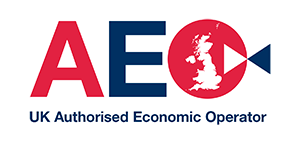
Welcome to CustomsLink Cyclopaedia, the series where we answer some of your more general customs queries.
Today, we’re talking about Master UCRs.
What does MUCR stand for, and what are MUCRs used for in customs?
Here’s everything you need to know.
What is a MUCR?
A Master Unique Consignment Reference (MUCR) is normally used to link or associate several Declaration UCRs (DUCRs).
For example, when a single container holds multiple consignments from different exporters, each of whom has its own DUCR, then a Master UCR may be used to link these DUCRs together.
This process can be extremely useful. Instead of needing to quote many individual DUCRs for each consignment, you can simply advise CHIEF that each Declaration UCR is associated with one single Master UCR.
The Master UCR can therefore be quoted in reference to all the consignments within the container.
You can find your UCR on your CustomsLink Dashboard, along with your MRN.
What can a MUCR be associated with?
Master UCRs can be associated with one or many Declaration UCRS and, in some cases, may even be associated with other MUCRs.
Meanwhile, a Declaration UCR can only be associated with one MUCR at a time.
How is a MUCR associated?
Association may be carried out at the time of making a customs declaration. This is usually done by advising both the Declaration UCR and Master UCR on the customs declaration form.
Master UCRs can also be associated for Authorised traders, for example, Community Systems Providers (CSPs) or consolidation.
This can be done by including the Declaration UCR and Master UCR in your arrival message at a Customs controlled location, or through an explicit association transaction.
This will also enable you to disassociate a Declaration UCR from a MUCR.
Alternatively, a Master UCR (or a DUCR) can be associated with a Master UCR of a higher level through this association transaction.
At CustomsLink, we offer a specialist MUCR service. We can consolidate your multiple DUCRs into one MUCR.
Save yourself the time and stress of juggling endless DUCRs by completing our MUCR request form or by getting in touch with a member of our expert team.








